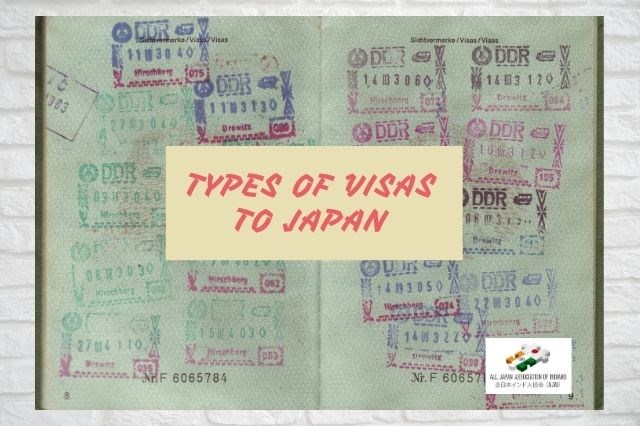Types of visas to enter and live/work/study/tourism/visit in Japan
Types of visas to enter and live/work/study etc. in Japan
- by Yogendra Puranik ‘Yogi’ on 11-Jan-2020
Japan has now become a hot destination for Indians. We have seen a steep rise in the Engineers and students coming to Japan. The sudden rise could be attributed to the growing bureaucratic relations between India and Japan and the news that Japan would employ non-skilled Indian workers.
You may come to Japan on short term / temporary (less than 90 to 180 days) and long term (more than 181 days) visa. The visas can be single or multiple entry.
Indian tourists can apply for a tourist / temporary visitor visa through Japanese consulates in India. You can apply through internet-based online systems now. Tourist visas can be applied in individual or in a group. You will need to show certain amount of bank balance to cover your costs.
Students come to Japan more through the Japanese government scholarships. Ministry of Education, Science and Technology of Japan (MEXT). Ministry of Foreign Affairs of Japan (MOFA) etc. are the key sponsors of student visas for the foreigners. Please visit the websites of these ministries, the embassy of Japan in India for information on these scholarships. Various scholarships are awarded for under-graduate, graduate and higher research programmes. Many universities like University of Tsukuba etc. also offer their own scholarships.
In recent years, students have started coming to Japan, on personal expenses, mainly to study Japanese language. The private language schools offer language classes for around 50,000 a month. You are likely to speak good day-to-day Japanese language after the study for six months to one year. If you have good basic qualification and you are able to speak good Japanese language, there are higher chances to get a decent job in Japan.
For the working class, Japan offers following visa categories.
1. Inter-company transfer visa
2. Engineer visa – for jobs like engineering, IT programming etc.
3. Humanities visa – for jobs like sales, marketing, coordination etc.
4. High skill visa – for people with engineering or master’s degrees, high level of Japanese language skills etc. This visa boasts the greatest number of benefits offered by the Japanese govt.
5. Skilled visa – for labor jobs that need specific skills. For example, cook, welder etc.
6. Technical intern – for non-technical, non-skilled workers to work in specified fields of work. The nominees have to undergo a language and cultural training at the training centers in the country of origin.
The spouse and kids that accompany the students of workers are offered dependent visa with the same duration as the sponsor’s visa. The dependents can be covered under the medical insurance schemes of the sponsor.
The dependents above 16 years of age are allowed to work for 28 hours a week for which they have to get one-time prior permission from the immigration bureau.
The working class can invite their parents to Japan on three-months tourist visa. Only in exceptional cases the working class will be able to extend the stay of parents beyond days. Only the high skill visa holders are able to invite the parents on a one-year designated activities visa.
Long termers can take benefit of following visa categories.
1. Permanent residence – for people living in Japan above 10 years. High skill visa owners can apply just after 3 years of stay in Japan after getting the high skill visa. Takes around one year for approval.
2. Citizenship by naturalization – for people living in Japan above 5 years. Takes around one year for approval.
3. Long term visa – typically for special cases like a dependent living in Japan for long time and used to the life in Japan having lost the visa sponsor (the spouse). Not a easy visa to get.
Except for the tourist visas, for the student, work and dependent visas, the immigration bureau first scrutinizes the documents and issues a Certificate of Eligibility (COE) which is then submitted to the local Japanese consulates in the traveler’s country of origin for visa stamping.
The process of Naturalization is handled by the office of Ministry of Justice in respective prefectures of Japan. A series of three interviews, loads of documentation and a Japanese language test are required for the application process. The Japanese language test could be exempted in case you possess language certifications.
The visa processing fees is not so expensive as compared to many European countries or Americas.
All the best
For All Japan Association of Indians (AJAI)
Disclaimer: The information mentioned here could be outdated. Please consider this article as a guidance and do refer to the latest information available on the internet etc.

